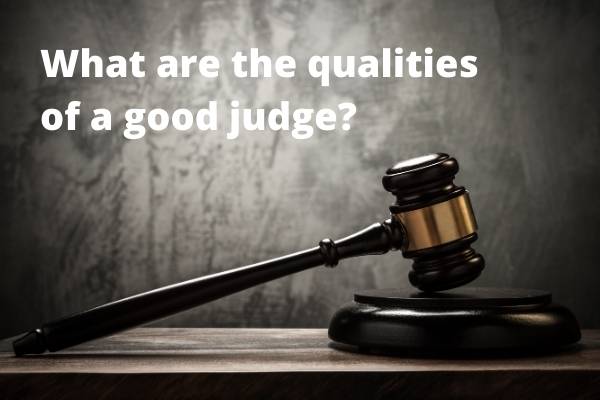Before Election Day, voters know something about their judicial candidates. Judicial candidates running for city, county, district or even state judges tend to run campaigns with a lower level of advertising and promotion. Whatever information a candidate can get out about their qualifications and temperament is important.
Because the level of voter contact may be less than other elected offices, running a campaign for judge has particular challenges. It’s important to put yourself in the best light possible. Here are some traits judicial candidates should consider when promoting themselves to voters, either through print or a campaign website.
Positive personal qualities for judicial candidates
Character and Integrity. Integrity is the keystone of our judicial system.Emphasize your personal temperament, your historical integrity, and – if necessary – lack of partisan influence. There should be no doubt about your personal or professional ethics – or your judicial independence.
Legal Accomplishments. Your educational and professional experience should provide a good basis for voters to evaluate you. This may include trial and/or courtroom experience. Even lawyers in private practice may have experience that can make them effective judges. It should show that you can handle the position, can deal with legal issues, and successfully dispense justice effectively.
Community Involvement. How have you participated in community activities or pro bono work as an attorney? What organization are you affiliated with? What positions do you currently hold or have held in the past?
Judicial Temperament. How will you conduct yourself on the bench? How will you interact with citizens, officers and court personnel? What will guide your decisions? While you may not be able express personal opinions publicly, voters who are paying attention will probably be able to determine if you have a proper judicial temperament.
The Illinois Supreme Court has adopted a rule that speaks to basic qualities. Rule 63(A)(3) provides that: “A judge should be patient, dignified and courteous to litigants, jurors, witnesses, lawyers and others with whom the judge deals with in an official capacity.”
Knowledge of the law. The role of the judicial body is to decide legally how a case should be handled. Every one of the newly appointed members of the court must have a thorough knowledge of the law.
Some judges tend to cram too much ‘legalese’ into their campaign materials. While that may help if you are running for a position in a bar association, many voters will either ignore or disregard large amounts of information. The average voter only reads at the eighth grade level. Your promotional material should be written to that level.
Succinctly summarizing your skills, history and approach will be much more effective than writing a 50-page brief about yourself. Voters are not lawyers – don’t treat them like one!
Brevity is the soul of wit – Shakespeare
The qualities of a great judge include patience, humility, integrity, courage, clear eyes, a steady demeanor, alertness and the ability to think creatively. One must also be able to assess the situations in which he or she will likely rule and be able to logically analyze legal issues.
Additionally, a judge should have a sense of humor and be able to determine the truth from facts even when that truth is uncertain.
Most importantly, a good judge must be fair to all parties involved in cases before the bench.
These virtues help voters select the best candidate to serve in our system of justice.

Related: Campaigning for a judge’s seat? A sexier title could get you elected — or sued

